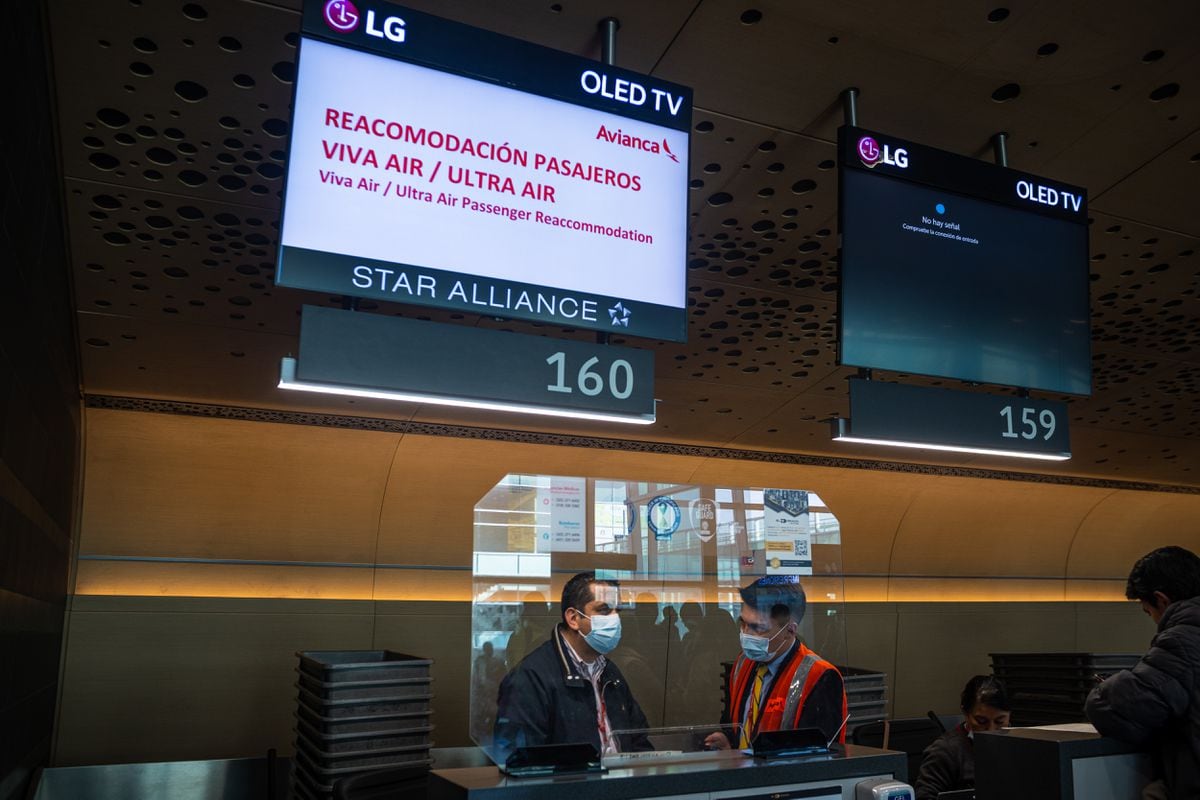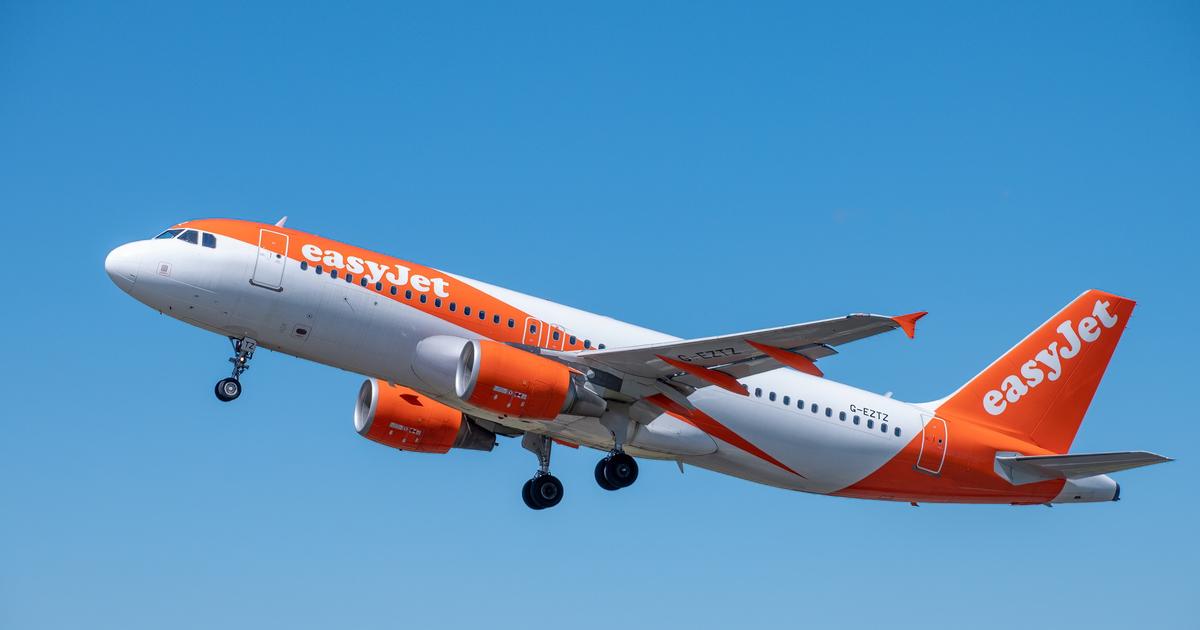With only 30 days apart, two airlines have suspended operations in Colombia.
The decline of Viva Air and Ultra, two cheap flight companies suffocated by debts after the pandemic, has been experienced as if in slow motion, while passengers stuck on the ground multiply by hundreds in the middle of Easter.
After this crisis lie shocks in oil prices, the depreciation of the peso against the dollar and a business management branded by some analysts as "private" and "very aggressive" by others.
But not only that.
In the case of Ultra Air, which operated for a year, there is a structural factor in the passenger air market that has not been addressed much.
This is an April 2018 modification to the Colombian aeronautical regulations aimed at liberalizing the rules of the game: "Capital requirements were eliminated," says the expert Claudia Velásquez.
“From there the new companies that wanted to enter, like Ultra, no longer had the same monetary demands to support their operation.
It is a figure that is used in other countries but that for the Colombian case was poorly adjusted due to a very subjective and very open wording for the exercise of good surveillance and control”.
The expert argues that, in both cases, there were early warnings so that the "Government will act in a timely manner and avoid bankruptcy."
Leaving aside the multiple setbacks in the already approved Avianca and Viva Air business merger plan, since April 2022 there were already signs of a slow agony for the Paisa airline.
Its bankruptcy has affected connections where the two companies operated, such as the resort of San Andrés, an island plunged into uncertainty due to the cancellation of the 30 daily flights on average that kept its biggest economic engine active: tourism.
A passenger waits for his flight to be rearranged, on March 30 at the El Dorado airport.Diego Cuevas
The Minister of Transportation, Guillermo Reyes, indicated on Friday that among the containment measures, the possibility of transferring passengers to the state company Satena is being studied so that they cover the routes that corresponded to Ultra, as well as declaring an economic emergency in San Andrés and reducing the VAT on air tickets.
Velásquez, however, leaves two key questions to begin to clarify the situation: What are the financial requirements that Civil Aeronautics demands today from companies to guarantee their economic solidity?
And how much preventive vigilance is exercised today in the sector?
He recalls that air transport is an essential public service that will provisionally remain with a gap of more than 20% in the offer.
"There is a great institutional responsibility," asserts Velásquez,
Viva, founded in 2009 and active since 2012, had a Peruvian subsidiary and covered 13 international lines, becoming the third company by share in the passenger market.
The aeronautical consultant Franco Rinaldi assures that its business model was "somewhat aggressive" compared to other competitors of the same character, such as Wingo: "I have the impression that there were other airlines that were much more attentive to the care of their money, more conservative in its start-up, with a gradual process of incorporating personnel, fleet and others.
These issues were probably evident in the post-pandemic market.”
He refers to a few months in which high inflation, which has so far begun to subside in Colombia, has hit the purchasing power of potential travelers.
The low-cost segment depends almost exclusively on the volume of passengers that travel for tourism, unlike the largest companies that add business flights.
In this way, the contraction in the consumption of vacation tickets, which in the Colombian market is focused on two moments of the year, has drastically cut income.
In addition, they are transactions that are made in a weakened Colombian peso, and the fall occurs in parallel with an increase in expenses that are covered in dollars, such as fuel payments, aircraft leasing, crew training or insurance. .
eViva Air planes parked at the José María Córdova International Airport in Rionegro (Colombia) on March 1. Luis Eduardo Noriega A (EFE)
This collusion of economic factors that has taken its toll on the business of flying with low fares and its risky promotions of cheap tickets, which in almost no place in the world has been able to establish itself as a profitable business model.
It is also a reality that in Colombia a rise in ticket prices is predicted after the disappearance of two operators, whose abandoned routes will be covered by traditional players with other emergencies in their balance sheets and little need to lower prices.
One of the points of union between Viva and Ultra is the Mexican businessman William Shaw, a former shareholder, and founder and CEO of the latter.
Shaw explained in an interview for the Colombian edition of Forbes magazine that, until the last moment, Ultra's directives knocked on the doors of various actors to capitalize on it.
But the increase in the price of a gallon of fuel, from 1.60 to 5 dollars at its highest point, ended up suffocating them.
Santiago Álvarez, executive director of the Colombian subsidiary of Latam, affirms in the same vein that 2022 was a very complex year for all the airlines in Colombia: "we face inflationary pressures of more than 50% in the cost of fuel, all of this accompanied by a devaluation of the peso against the dollar of more than 25%, generating great pressure on operating costs”.
That is why he draws attention to the vulnerability of airlines with "less support and solidity", which have been the most affected.
Franco Rinaldi recalls from Buenos Aires that something similar has happened in Argentina with the Scandinavian Norwegian Air Shuttle or the local Flybondi: “Perhaps the model has been too aggressive and that is a problem.
It is probable that at the root of the Colombian case there are some untidiness or flatness in the process of market liberalization
When recapitulating the chronology of this crisis in Colombia, more than one industry analyst expresses his reservations regarding the precautions taken over time in the financial management of low
cost
.
One of the peculiarities of the Colombian case is that these operators, unlike their peers in other countries, opted to market their sales through traditional travel agencies.
A nonsense for more than one observer, if one takes into account that one of the advantages of the segment was direct sales, without intermediaries that make management more expensive: "All these things, in such a delicate situation, it is important that they have supervision of the Government”, ditch Claudia Velásquez.
“These types of airlines need a lot of capital to survive in the market.
That is why you have to take care of Easy Jet, which is small and provides a great regional connectivity service, so that nothing happens to it”.
Subscribe here
to the EL PAÍS newsletter on Colombia and receive all the latest information on the country.





/cloudfront-eu-central-1.images.arcpublishing.com/prisa/QTVF3EOGLFBTPJL3YXHGH4CEFE.jpg)
/cloudfront-eu-central-1.images.arcpublishing.com/prisa/MQ62V24GUVHPRDNYKHSOUZO7ZE.jpg)






